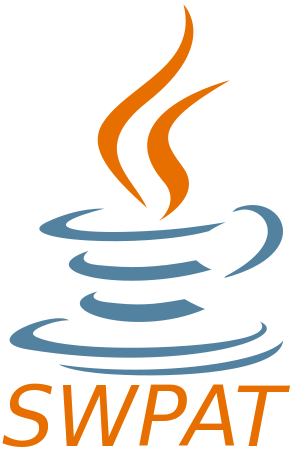08.21.10
Posted in Site News at 11:55 pm by Dr. Roy Schestowitz

Summary: The crossing of another milestone and return to normal posting pace
This is post #11,001 in Techrights. We are currently catching up with Microsoft news for the most part. Normal operation will hopefully resume tomorrow after an on-off affair in recent days. █
Permalink
 Send this to a friend
Send this to a friend
Posted in News Roundup at 5:00 pm by Dr. Roy Schestowitz

Contents
-
Desktop
-
How about application GUIs that learn, and get more streamlined over time because they remember your previous operations? Instead of having to wade through the same baby steps every time you use the program. Or configurable GUIs so we can streamline them ourselves. I think this all by itself would be a “killer feature”. It does not seem that efficiency is very important in GUI design. The command line still reigns supreme for efficiency because it has multiple tools for customization, doing things faster, and automating repetitive tasks.
OK, well, that’s pretty much it for my Linux usability wish list. For the most part working in Linux is pleasant and satisfying, much more so than Mac and Windows, and I can’t find too much to get exercised about. What are your usability wishes?
-
Audiocasts/Shows
-
IBM
-
Recently, some colleagues were talking about the upcoming LinuxCon 2010 in Boston – “The Linux Foundation’s annual technical conference that provides and unmatched collaboration and education space for all matters Linux.” Hearing about this conference brought me back to 1999, when we started a number of studies that culminated in the announcement of the new IBM Linux initiative in January of 2000.
By the summer of 1999, Linux was picking up steam in the marketplace, especially in areas where IBM was very involved, including Internet infrastructure and supercomputing. At the time, a number of research institutions and leading edge companies were already using clusters of Intel processors running Linux as a way of building relatively inexpensive, and increasingly powerful supercomputers, as well as highly scalable web servers, distributed file and print servers, network firewalls, and other Internet infrastructure applications.
We commissioned a couple of studies, one focused on the use of Linux in supercomputing, and the other on Linux as a high-volume platform for Internet applications. Both studies strongly recommended that IBM embrace Linux across its product lines, that IBM should work closely with the open Linux community as a partner in its development, and that we should establish an organization to coordinate Linux activities across the company.
-
Kernel Space
-
Kernel mode-setting (KMS) is useful for faster VT/X switching, VTs being always at the panel’s native resolution, the ability to thwart some security bugs in the X.Org Server (as shown earlier this week), presenting a cleaner and more flexible architecture, and allowing new and interesting projects to emerge (such as Plymouth and Wayland), but the benefits do not end there. When kernel mode-setting is combined with KDB, a Linux kernel debugger shell, you now have one powerful combination.
-
Graphics Stack
-
Welcome to X server version 1.9.0.
-
Applications
-
Desktop Environments
-
K Desktop Environment/KDE SC)
-
So, one of the first distros that contacted me related to branded Stripes was openSuse. So, this is one of the versions.
-
GNOME Desktop
-
We introduced to you guys probably the best combination of gtk theme and icon set for Ubuntu/Gnome[Equinox gtk theme + Faenza icon theme]. Now take a look at Awoken icon theme. I won’t say it is better than Faenza icon theme, but it is almost as good.
-
-
-
Debian Family
-
Canonical/Ubuntu
-
So, who’s up for making Maverick Movies? It would be great to have a “10 best features in 10.10″ video collection for release. Unity’s awesome and then there are things to show off in OO.o, Gnome, Firefox…. giving credit where it’s due.
-
Something I need to make clear up front is that the KDE client does not connect to the Ubuntu One servers itself. This will probably sound odd to you, so let me explain just how both the KDE and GNOME clients generally work. There is a helper application for authentication (in up to 10.04 called ubuntuone-auth, in 10.10 and above ubuntu-sso-client) that handles authentication to Ubuntu One. Secondly there is a synchronization component called SyncDaemon, as one can assume it handles synchronization of data and is essentially the gateway to the the servers. Thirdly there are clients that talk to the SyncDaemon. Such a client could be a tray icon that informs you whether your SyncDaemon is actually connected or not. But it could just as well be an application to manage your shares. I implemented 2 of those using KDE or Qt technologies, namely the client structures and the authentication helper. I did not reimplement the SyncDaemon!
-
-
-
-
Phones
-
Android
-
Motorola set the standard for Android-based QWERTY sliders when it launched the original Droid last year. An aggressive advertising campaign, excellent specs, and an appealing form factor propelled the Droid to the top of the charts and made it one of the best-selling Android smartphones. Motorola is sticking to its winning formula for the product’s sequel, the Droid 2, which recently launched on Verizon’s network.
-
-
“Public Software? The so-called Public Software is a political project which aims to remove the Free Software main feature: the Freedom. It tries to put the people in the role of mere “viewing public”. The Free Software Social Movement historically called the participation of the entire society for the transformation of the surrounding reality, it aimed to create PRODUCERS of free culture, free software, free computer networks and free hardware in order to achieve a freer society .
-
It is common for market laggards to go open source. It is less common for market leaders to do so.
Thus we need to celebrate the Affero GPL 3.0 version of Urbi, software that powers (among others) the Segway RMP and Lego Mindstorm.
-
When Amanda Brock joined Canonical two and a half years ago, she discovered something rather surprising about open source.
-
Within the Drupal project, we don’t have a paid staff to advance the software. However, many of the developers who contribute to critical parts of the Drupal code base make their living by building complex Drupal websites. Some Drupal developers are paid by customers to contribute their expertise to the Drupal project or are employed by companies “sponsoring” Drupal development.
-
I’ve been working as a freelancer for almost a year now, and I cannot help noticing how free software helps making this possible. Working in an international setting, most of the work is done from my home office. This requires techniques to get the work done. Small motivational “rewards” (or really fun customer assignments so that one forgets lunch…) The other half is the communication with the customers itself. This is where free software enters the picture.
-
Web Browsers
-
Mozilla
-
Today, Mitchell Baker was announced as the recipient of Frost & Sullivan’s 2010 Growth, Innovation and Leadership Award. Mitchell will be honored for her achievements at the annual GIL 2010 event in Silicon Valley on September 13, 2010.
-
Oracle
-
By now you’ve read that Oracle has sued Google for patent and copyright infringement related to the Android platform. Google has responded that the claims are baseless and counter to the open source community movement. In all the hullabaloo, the press, pundits, Oracle, and Google seem to have ignored the impact on enterprise Java.
-
Healthcare
-
Long before open source entered the lexicon, the Veterans Administration (VA) was known to techies for VistA, an electronic medical record (EMR) program written in MUMPS that was developed in an open way and published as a public record, freely available.
-
Do parents have the right to know which of their kids’ teachers are the most and least effective? That’s the controversy roaring in California this week with the publication of an investigative series by the Los Angeles Times’s Jason Song and Jason Felch, who used seven years of math and English test data to publicly identify the best and the worst third- to fifth-grade teachers in the Los Angeles Unified School District. The newspaper’s announcement of its plans to release data later this month on all 6,000 of the city’s elementary-school teachers has prompted the local teachers’ union to rally members to organize a boycott of the newspaper.
-
Environment/Energy/Wildlife
-
Indeed, for Transitionists who dream of moving quadrillions of BTU demand, currently supplied by oil in global transport, over to a new electrified grid it behooves us to think harder about resources such as Copper. Like Kedrosky, and surely some of my readers, I have marveled over the possibilities of material upgrading and other technological wonders of resource substitution–the kinds of methods that often appear in presentations from places like MIT’s Solar Group. That said, we need to confront the fact that in conjunction with new lows in global copper ore grades, the price of copper–just like oil–has entered a new regime. Expecting a miracle of substitution in copper, or a price reversal downward away from the current regime, is certainly not realistic if we are on the threshold of hitting hard global copper resources to electrify world transport. Simon-Ehrlich recasted is another important step, therefore, towards the realism we need to actually solve the challenge of energy-transition.
-
Finance
-
If you’re expecting the new financial reform law to cut into Goldman Sachs’ profits, think again, says Matt Taibbi at Rolling Stone. The Los Angeles Times recently reported that Goldman executives are privately — and with conviction — assuring analysts that they won’t make any less money than they did before. Goldman appears to be “seriously preparing for some major changes,” since the new rules bar banks from engaging in proprietary trading, or investing the firm’s own money. The idea is to prevent federally-insured depository institutions from “engaging in high-risk speculation,” but apparently there are enough “loopholes” in the new law to “allow the bank to continue gambling as before.”
-
What to make of their latest research note? It is something of a glass half-full, glass half-empty story. Here are excerpts from the report, by Ed McKelvey, issued Thursday. Make your own call on whether to view this take on the U.S. economic outlook as fundamentally optimistic or pessimistic.
-
-
A New York judge has combined two shareholder lawsuits against executives and directors of Goldman Sachs Group Inc and put the case on hold pending progress on resolving it and 16 related federal lawsuits.
All of the lawsuits concern Abacus, a transaction that led to Goldman’s agreement in July to pay $550 million to resolve a U.S. Securities and Exchange Commission civil fraud lawsuit.
-
-
That’s not the way Goldman handled its image, though. With few exceptions, Goldman dismissed the verdicts of its critics. That just created more of them, culminating in an ignominious Securities and Exchange Commission fraud charge and settlement. It all tarnished the firm’s stated goal of unparalleled client focus.
-
Pacific Investment Management Co.’s Bill Gross urged government officials today to allow all borrowers who haven’t missed payments on Fannie Mae and Freddie Mac loans to get lower-cost mortgages. Dachille, who oversees about $8 billion of fixed-income investments, supported the idea yesterday in a telephone interview, saying such financing should be offered without consideration of homeowners’ incomes or house values.
-
John Paulson, the hedge-fund manager who became a billionaire by betting against U.S. mortgage markets, bought 1.1 million shares of Goldman Sachs Group Inc. in the second quarter.
-
Censorship/Privacy/Civil Rights
-
Spiegel reports that German photographer and IT consultant Jens Best wants to personally take snapshots of all those (German) buildings which people asked Google Street View to remove. He then wants to add those photos to Picasa, including GPS coordinates, and in turn re-connect them with Google Maps. Jens believes that for the internet “we must apply the same rules as we do in the real world. Our right to take panoramic snapshots, for instance, or to take photographs in public spaces, both base laws which determine that one may photograph those things that are visible from public streets and places.”
-
“I do not consider there to be any reason to suspect that he has committed rape,” chief prosecutor Eva Finné said in a statement explaining her decision.
The statement was issued at 4.30pm on Saturday to confirm that Assange was no longer a suspect and is thus no longer required to contact the police.
-
Internet/Net Neutrality/DRM
-
Plenty of people are worried that the Google/Verizon net neutrality proposal has too many exceptions. The recording industry is worried that it doesn’t have enough.
In a letter sent today to Google CEO Eric Schmidt, the RIAA and other music trade groups expressed their concern that the riddled-with-gaping-loopholes policy framework nevertheless might put a damper on ISP attempts to find and filter piratical material flowing through the Internet’s tubes. Failure to allow for this sort of behavior would lead to an Internet of “chaos.”
-
Posting on the userbase.be forums, the ISP was kind enough to share data on its top 20 subscribers (with their permission). In the top spot was a user who managed to transfer 2.7TB of data in a single month. 2nd to 5th spots counted 1.9TB, 1.4TB, 1.3TB, and 1TB of data transferred. After that the numbers fall quickly.
-
Intellectual Monopolies
-
Copyrights
-
ACTA
-
Round ten of the Anti-Counterfeiting Trade Agreement negotiations in Washington concluded on Friday with countries confirming progress on all fronts and hopes to reach agreement on all remaining substantive issues at the next round in negotiations in Japan in late September. While the joint statement is not yet online, Reuters reports that the U.S. believes the remaining issues – including the U.S. – E.U. divide over geographical indications – could be resolved at the next meeting. The statement repeats earlier assurances about the impact on fundamental rights, cross-border transit of generic medicines, and iPod searching border guards.
Ps3 hack by Modchip with Jailbreak [ps3club]
Permalink
 Send this to a friend
Send this to a friend
Posted in Novell, Servers, SLES/SLED at 1:56 pm by Dr. Roy Schestowitz

Summary: Novell is still primarily a company of black boxes, WorkloadIQ being the latest example of a trend
AS IF JUST to show its lack of commitment to software freedom, Novell continues to announce the release of more proprietary software and ITWeb is just reposting press releases like several other sites that serve as Novell’s mouth:
Novell today announced WorkloadIQ (TM) — the companys differentiated approach to lead and enable the rapidly growing intelligent workload management(IWM) market. Novells strategy for IWM, WorkloadIQ, is based on its ability to integrate identity and security into IT workloads thereby giving customers the confidence and flexibility needed to deliver IT services to end users across physical, virtual and cloud environments. Following its December 2009 announcement to compete in the IWM market, Novell has shipped seven WorkloadIQ products, to date, and plans to ship five additional products before the end of December 2010. Many customers and partners have committed to WorkloadIQ by investing in one or more of these products.
This is the type of thing Novell promotes in Linux events, as already noted in the previous post. There are other examples and even Novell training is going that way. Novell uses Fog Computing in order to sell proprietary software and encourage use of such software.
There is also Novell’s Ballnux, which is a Microsoft distribution of GNU/Linux (Microsoft makes money from it) masquerading as Free software. IBM uses SLES and Novell promotes that product at the expense of OpenSUSE. Here is another article about Novell's Amazon deal, which helps put a Ballnux-modeled Microsoft tax on all servers there.
Novell today announced that Amazon Web Services (AWS) will offer hourly based pricing and support for SUSE Linux Enterprise Server.
As an update from the Mono camp we have:
Gabriel Burt, one of Banshee’s maintainers, merged in the GIO/udev hardware backend that Alan McGovern and I have been working on. This is awesome for everyone. Here’s why it’s awesome for you.
Novell is also uploading loads of old commercials via the appropriately-named account, VintageNovell, which is described as follows (in the channel):
This is the Channel for old Novell Marketing videos. Most of the videos on this channel were filmed in the mid to late 90′s.
About 20 more videos were uploaded in the past month (starting August 12th), celebrating Novell’s marketing legacy, which is purely for proprietary software. Here is an “outdated Novell server” causing problems this month. Why does anybody still buy from Novell? Is it the brand? █
Permalink
 Send this to a friend
Send this to a friend
Posted in GNU/Linux, Novell, OpenSUSE at 1:07 pm by Dr. Roy Schestowitz

Summary: Bits of news about OpenSUSE, whose birthday too few people remembered or celebrated
EARLIER THIS month we wrote about OpenSUSE’s birthday [1, 2]. It was not celebrated as much as Debian’s birthday, so one of OpenSUSE’s biggest proponents has noticed that and publicly pointed it out in Linux Journal.
Poor openSUSE was nearly forgotten. Their fifth birthday fell on August 9 and only one Website remembered. OMG! SUSE! offered their birthday wishes and gave a few milestones. Mentioned was the initial release of openSUSE, 10.0, in October 2005 and there have been seven major releases since. The most recent was 11.3.
OpenSUSE has new problems.
Artwork for the next version of OpenSUSE is already being prepared and Linux Journal published this summary of the recent talk from Novell’s Markus Rex (mentioned last week).
Markus Rex talked about Fog Computing and took the opportunity to promote Novell’s proprietary software in a Linux event. This is why we persistently warn about Novell’s direction as a vendor; it’s too Novell-centric and it involves proprietary, not freedom (in other words, more of the usual). New examples will be given in the next post. █
Permalink
 Send this to a friend
Send this to a friend
Posted in Finance, Novell at 12:53 pm by Dr. Roy Schestowitz

Summary: John Paulson’s stake in Novell increases one week before its disappointing financial results officially arrive
BACK in May we wrote about John Paulson’s Paulson & Co putting his chip on Novell. Paulson is not a real businessman, he’s in the hedge fund meta-industry, so it’s reasonable to suspect that he too is among those 3 possibilities circling Novell with a takeover in sight [1, 2]. The 451 Group says that “there are only three left at the table: a private equity-backed company, a UK-based PE firm and a joint bid between a publicly traded tech company and a buyout shop.”
According to two items of news, Paulson is throwing some more of his chips into Novell’s table.
John Paulson added to his holdings in Novell Inc. by 20%. His purchase prices were between $5.25 and $6.26, with an estimated average price of $5.87. The impact to his portfolio due to this purchase was 0.13%. His holdings were 30,000,000 shares as of 06/30/2010.
Timing matters a lot in this case. Novell’s results will be out soon [1, 2] and optimistic reports like this one or that one are baseless given the recent warning from Novell. “Novell Set to Pullback after Yesterday’s Rally of 2.11%,” says another short report. Given that Novell has already warned about poor performance, investors are unlikely to be shocked next week. However, if Novell announced an impending sale of the company, that would really be something. Paulson seems like a possible candidate. █
Permalink
 Send this to a friend
Send this to a friend
Posted in GNU/Linux, Law, Novell, Oracle, SCO at 12:19 pm by Dr. Roy Schestowitz

Summary: Of all the solicitors in the world Oracle has chosen MoFo and Boies Schiller, which one might recognise from SCO’s (non)case against Linux
LAST YEAR we wrote about MoFo (it also stands for or abbreviates “motherf*****”, not just Morrison & Foerster LLP), which played a part in the SCO case. Many articles about Oracle’s Java lawsuit [1, 2, 3, 4, 5, 6, 7, 8, 9, 10, 11, 12] mention Schmidt’s prior role at Novell; for example:
Google’s founders had a vision of a world where superior efficiency and scale provided unchallenged market position and competitive advantage. CEO Eric Schmidt joined after being at two companies that lost such a game: Sun and Novell (NOVL). (Am I the only one who sees an irony in Schmidt being beaten over the head with a club he helped make?)
Notice who plays for Oracle: MoFo and Boies Schiller:
MoFo, Boies Schiller Take Lead as Oracle Slaps Google With Patent Suit
[...]
Beck notes that Boies and Jacobs have been adversaries before, squaring off against one another in the six-year dispute between SCO Group and Novell over copyrights to the UNIX operating system. Boies represented SCO; Jacobs prevailed in a trial this year on behalf of Novell.
How hard is Oracle trying to be associated with or compared to SCO (as in “SCOracle”)? Here is another new article about it:
Oracle Taps MoFo, Boies for Patent Suit Against Google
[...]
Another interesting fact: Boies and MoFo’s Jacobs, who are co-counsel in this case, faced off in the six-year legal fight in which SCO Group sued Novell over copyrights to the UNIX operating system. Jacobs represented Novell and Boies represented SCO. Jacobs has emerged the winner so far, with Novell prevailing in a trial this year in which it was found to own the copyrights to UNIX. SCO has appealed. (Boies himself did not handle that trial.)
Is Oracle planning a similar legal strategy? Hopefully this won’t be a long battle. The quicker the resolution, the better. █
Permalink
 Send this to a friend
Send this to a friend
Posted in America, Apple, Java, Law, Oracle, Patents, SUN at 10:23 am by Dr. Roy Schestowitz

Summary: Gosling may have helped Sun gain bogus patents (violation of USPTO rules), the USPTO delegitimises itself with poor adherence to quality, and Acacia receives more money with which to further delegitimise the USPTO
THE GOOD thing about the Oracle lawsuit (which is generally very bad [1, 2, 3, 4, 5, 6, 7, 8, 9, 10, 11, 12]) is that it motivates more people to end software patents right now.
The debate about software patents is hot again. Rui Seabra passes the message that “Merely asking #Oracle: “play nice” isn’t enough. We should demand abolition of their #swpats [software patents]”
Red Hat’s Richard Fontana says: “incidentally, whatever one thinks of #swpats, #disturbing if #Gosling knowingly signed off on bogus patent; see http://ur1.ca/16ox4 [§ 1.56 Duty to disclose information material to patentability. - Appendix R Patent Rules]”
Fontana is referring to joke patents [1, 2, 3], which continue to cause great controversy and stir up important debate.
Mike Masnick shows that “Patent Office [is] Back To Approving Pretty Much Anything”:
Of course, the unfortunate reality is that this won’t actually solve the backlog problem at all. You would think, with all the engineering/operations brains at the Patent Office, that they would understand that this will only make the backlog worse. Approving junk patents only makes it more lucrative to file ever more ridiculous patent applications, which only increases the backlog. In rushing through more patents, it only encourages a bigger and bigger backlog. In treating the symptoms, rather than the actual disease, we’re making the disease much, much worse.
Separately, Masnick shows that the court system (not the USPTO) rejects a controversial patent. The courtroom — unlike the USPTO — does not have special incentive in approving more and more patents.
Last fall we wrote about how a company named Ultramercial had sued Hulu, YouTube and WildTangent over patent 7,346,545 for requiring people to watch an ad before being able to access content. It resulted in an interesting discussion in our comments, where some patent system defenders insisted that the patent was perfectly legit. Unfortunately, the court disagrees with those folks. It has ruled that the patent is not valid (the ruling covers Hulu and WildTangent — YouTube was dismissed from the case). Perhaps most interesting is the fact that the court chose to use the “machine or transformation test” for judging the patent. While some have read the Bilski ruling to “reject” the “machine or transformation” test, that’s not quite true.
Simon Phipps responds to the Oracle lawsuit also by raising questions about OIN:
Software patents are broken and the only possible justification for having them is self-defence (which is itself a risky accumulation of armaments). Perhaps OIN and the Linux Foundation need to make membership conditional on members taking no first action against each other with software patents?
We criticised the OIN’s vulnerabilities long before other people did, even back in 2008. Additionally, we seemed to be among the first to suggest that Apple could have a role in Oracle’s action (we brought up the possibility hours after the announcement). We now find more articles noting the Jobs-Ellison connection and Apple booster Daniel Eran Dilger is adding to the FUD. We link just to comments on his article, not from his Apple choir, so for anyone who still thinks that Apple and its followers are not harmful to Linux, pay careful attention to this. It’s part of a pattern from this close friend of Apple. People like Denial should do more to tell their emperors at Apple to stop the patent greed, including the investment in the world’s biggest patent troll. When Apple threatened Palm with patents, Daniel of course defended Apple.
Speaking of the world’s biggest patent troll, Acacia too has just received a quarter of a billion dollars of investment money (in patent trolling). [hat tip: FFII]
Acacia Research Corp. in Newport Beach has established a fund to buy, license and enforce patents and other intellectual property.
The Acacia Intellectual Property Fund LP has received an initial $27 million from an unnamed institutional investment group. An Acacia subsidiary will be the fund’s general partner.
[...]
Acacia recently announced two separate settlements with IBM for undisclosed terms to license Acacia-owned patents for monitoring computer applications. One lawsuit was pending in federal court in Texas and the other in Nebraska.
Microsoft recently paid Acacia, which sued Linux (through Red Hat and Novell). █
Permalink
 Send this to a friend
Send this to a friend
Posted in Europe, Microsoft at 9:29 am by Dr. Roy Schestowitz
Cut Microsoft, don’t cut hardworking homeowners and their families

Summary: Microsoft legacy on crucial PCs (PCS-associated computers) not only leads to unnecessary layoffs but also helps cyber-criminals intrude people’s records
ONE of the world’s largest police forces appears to be using a system far more antiquated than anything used elsewhere in the world, pretty much in line with the NHS, which still insists on using Internet Explorer 6. Is there anyone out there who happens to know for a verifiable fact that people’s criminal records — not just medical records — are stored on the digital equivalent of Swiss cheese? If anyone can provide us with a detailed breakdown of the system’s composition, it would be exceptionally valuable — not necessarily just to crackers, but also to those who worry about the systems that store sensitive information and should therefore be upgraded to something solid like Debian. Disasters can be averted while leading to savings. █
Permalink
 Send this to a friend
Send this to a friend
« Previous entries Next Page » Next Page »























 Content is available under CC-BY-SA
Content is available under CC-BY-SA